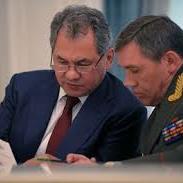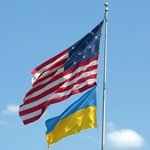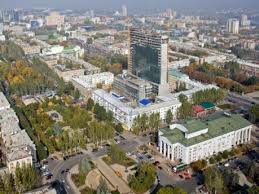Last week, I attended the Russian MOD’s Moscow Conference on International Security (MCIS). Over the next few days, I plan to share my impressions of the event. First up, the keynote speeches. The lineup of presenters at the plenary session could not have been more prominent. The key Russian speakers included Defense Minister Sergey Shoigu, Foreign Minister Sergey Lavrov, and Chief of the General Staff Valery Gerasimov. The other speakers included Belarusian Defense Minister Yuri Zhadobin, Pakistan Defense Minister Asif Khawaja, Iranian Defense Minister Hossien Dehghan, CSTO Secretary General Nikolay Bordyuzha, the political commissioner of China’s Lanzhou Military District General Li Changcai, Egyptian Deputy Defense Minister Mohamed Said Elassar, and Indian Deputy Defense Minister Anuj Kumar Bishnoi. So quite an all-star cast. The links above go to videos of the speeches (with audio in Russian) whenever they are available. Text summaries of the Shoigu and Gerasimov speeches have been posted online in Russian.
For those who don’t understand Russian, here are some highlights. I didn’t take verbatim notes, so consider these the key points — what seemed to me to be most significant from what was said.
Sergei Shoigu opened the conference. After some preliminary remarks, he launched directly into what turned out to be the main theme — the negative impact of colored revolutions on international stability. He made the claim that popular protests of this type were a new form of warfare invented by Western governments seeking to remove national governments in favor of ones that are controlled by the West in order to force foreign values on a range of nations around the world. He made the argument that the same scheme has been used in a wide range of cases, with the initial goal of changing the government through supposedly popular protests shifting into efforts at destabilizing and fomenting internal conflict if the protesters are not successful. This scheme was used in Serbia, Libya, and Syria — all cases where political interference by the West transitioned into military action. Now the same scheme is being followed in Ukraine, where the situation in recent weeks has become a virtual civil war, and in Venezuela, where the so-called democratic opposition is actually organized by the United States.
Shoigu pointed out that the consequences of colored revolutions are very different from the protest organizations’ initial states goals. The main result around the world has been instability. The Arab Spring, for example, has destabilized the Middle East and North Africa. Now, a whole range of African states are near collapse because of the effects of events in Libya. Afghanistan is also increasingly unstable, which has forced Russia to increase its military presence in Central Asia in order to contain threats coming from the south.
The second speech was by Foreign Minister Sergei Lavrov. He noted that Western states have been focused for years on containing Russia. They wanted to force CIS states to choose between East and West. This is what led to the crisis in Ukraine. Lavrov called for an end to zero-sum games and said that a Euro-Atlantic security regime was needed, with Russia and the U.S. involved on equal terms rather than having each side looking for geopolitical gains. What is needed is a new poly-centric international system.
He also noted that the same forces that the West are assisting in one country (Libya, for example) subsequently start being labeled as terrorists when they move on to a neighboring state (Mali). Lavrov then restated the main theme — “the export of democracy without taking local values into account leads to instability.”
Valery Gerasimov also focused on the role of the U.S. in international relations. He argued that the U.S. can’t deal with more equal relations among states, so it is using new tactics to assure its supremacy. These include sanctions and assistance for protesters, all backed up with the potential of using military force. He said that the U.S. and NATO are responsible for initiating the majority of conflicts in the world, including those in Iraq, Afghanistan and Yugoslavia. The only difference among these cases is the specific pretext for the military operation with which the United States seeks to eliminate opposing governments. The ostenisble goal of peace and stability is not achieved. Instead, the result is an increase in instability and many casualties.
Gerasimov then reiterated the idea that the United States has developed a new method of warfare, beginning with using non-military tactics to change opposing governments through colored revolutions that utilize the protest potential of the population to engineer peaceful regime change. But military force is concealed behind this effort. If the protest potential turns out to be insufficient, military force is then used openly to ensure regime change. Libya was cited as a textbook example. In Syria, the West is using mercenaries and military assistance in an effort to overthrow the government. What began as a purely internal conflict has turned into a battle between religious radicals and the government.
In Libya, the post-conflict period has been characterized by a crisis of power, with tribal control of parts of the country, widespread terrorism, large numbers of refugees, and the spread of arms to neighboring states that have also been destabilized as a result. Western countries have failed to take responsibility for post-conflict security in Libya. The same thing would happen in Syria if the government was overthrown. The Ukraine crisis is now turning into a civil war, with paramilitary groups being used against the peaceful population in eastern Ukraine. Mercenaries have arrived and it is not clear what will happen next, though military force is increasing in importance.
NATO is turning more anti-Russian, organizing a military build-up on its eastern borders. This will necessitate a Russian response. What is needed is more cooperation between Russia and NATO, but this is frozen. Again, colored revolutions are causing instability throughout the world.
Next up was Yuri Zhodobin, the Belarusian Minister of Defense. He began, not surprisingly, by focusing on how colored revolutions spread conflict to neighboring states. He even mentioned Gene Sharp as the originator of the strategy used in these revolutions, noting that colored revolutions are always set up from outside. The model is to train local activists for peaceful action. If that’s not effective, then paramilitary organizations are brought in and trained. He then went on to a discussion of how to counter colored revolutions, focusing on the importance of international organizations and joint defense and security structures.
Zhodobin highlighted the danger of arms falling into the wrong hands. He also mentioned that the Baltic States are not subject to any conventional arms control regime and could be used to concentrate and prepare forces that could then be used in third countries. He also highlighted the danger posed by a new NATO military buildup in Eastern Europe, with five NATO military exercises going on now in the region. He noted the danger of a new Cold War and mentioned the need to develop rather than destroy existing East-West military contacts.
Nikolai Bordyuzha made a few interesting arguments:
- The information war is always lost by those who speak the truth.
- The US has to block Russia from Europe in order to maintain control of the European economy.
- Ukrainian scenario follows directly from US policy on Yugoslavia.
And, to conclude, a summary of Li Changcai‘s key points:
- Russia and China are friends.
- China is being provoked regarding the ownership of several island groups.
- The Ukrainian crisis has a complex history and should be solved through dialogue on the basis of the Geneva agreements.
- Terrorism and extremism are the greatest threat in Asia.
- China will not allow the violation of Chinese sovereignty and interests.
- China supports further EU integration.
- Chinese economic development should be seen as an opportunity for the world.
See this post on Russian Military Reform











